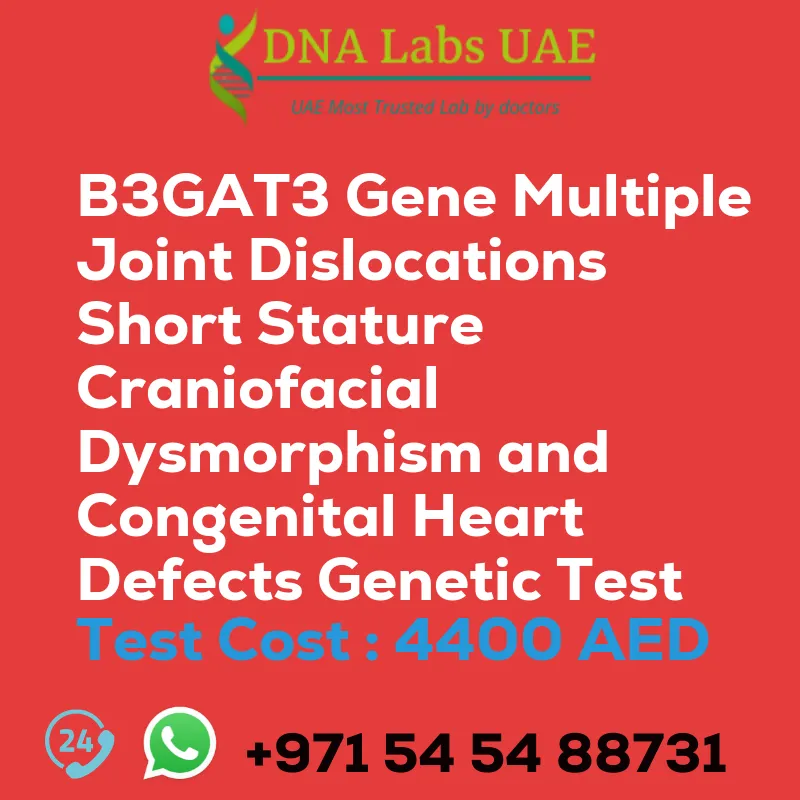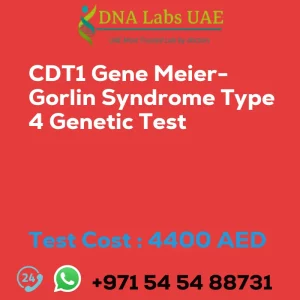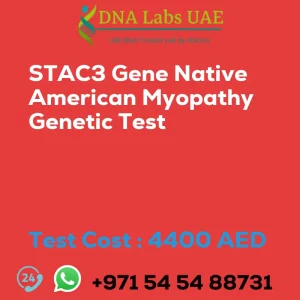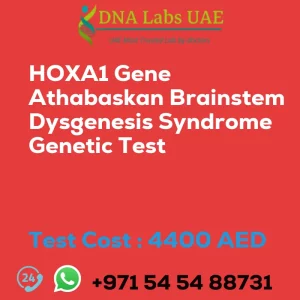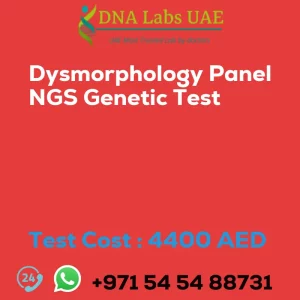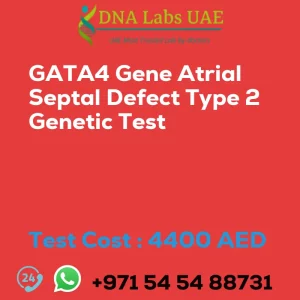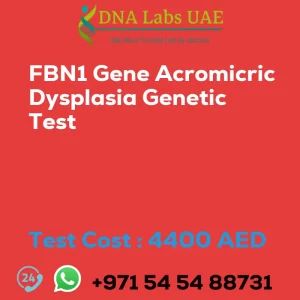B3GAT3 Gene Multiple Joint Dislocations Short Stature Craniofacial Dysmorphism and Congenital Heart Defects Genetic Test
Welcome to the DNA Labs UAE blog! In this article, we will discuss the B3GAT3 gene and its association with a rare genetic disorder characterized by multiple joint dislocations, short stature, craniofacial dysmorphism, and congenital heart defects (JDSSDHD).
Symptoms
Individuals with JDSSDHD may experience the following symptoms:
- Multiple joint dislocations: Frequent and recurring joint dislocations, particularly in the shoulders, elbows, hips, and knees, leading to joint instability and mobility difficulties.
- Short stature: Individuals with JDSSDHD typically have a shorter stature than average, often falling below the 3rd percentile on growth charts.
- Craniofacial dysmorphism: Craniofacial features associated with JDSSDHD include a prominent forehead, wide nasal bridge, widely spaced eyes (hypertelorism), low-set ears, a small chin, and a flattened midface.
- Congenital heart defects: JDSSDHD is also associated with various heart abnormalities present at birth, such as atrial septal defects, ventricular septal defects, or abnormalities in the heart valves.
Diagnosis
To diagnose JDSSDHD, DNA Labs UAE offers a genetic test specifically targeting the B3GAT3 gene. The test components include:
- Test Name: B3GAT3 Gene Multiple Joint Dislocations Short Stature Craniofacial Dysmorphism and Congenital Heart Defects Genetic Test
- Price: 4400.0 AED
- Sample Condition: Blood or Extracted DNA or One drop Blood on FTA Card
- Report Delivery: 3 to 4 Weeks
- Method: NGS Technology (Next-Generation Sequencing)
- Test Type: Dysmorphology
- Doctor: Pediatrics
- Test Department: Genetics
- Pre Test Information: Clinical History of Patient who is going for B3GAT3 Gene Multiple Joint Dislocations, Short Stature, Craniofacial Dysmorphism, and Congenital Heart Defects NGS Genetic DNA Test. A Genetic Counselling session to draw a pedigree chart of family members affected with B3GAT3 Gene Multiple Joint Dislocations, Short Stature, Craniofacial Dysmorphism, and Congenital Heart Defects NGS Genetic DNA Test gene B3GAT3
Test Details
The B3GAT3 gene is associated with the rare genetic disorder JDSSDHD. NGS genetic testing can be used to identify mutations or variations in the B3GAT3 gene responsible for JDSSDHD. This type of testing involves sequencing the individual’s DNA to detect any changes in the gene sequence that may be causing the disorder. The test results can confirm the diagnosis and provide valuable information for genetic counseling, family planning, and potential treatment options.
Thank you for reading our blog post about the B3GAT3 gene and its association with multiple joint dislocations, short stature, craniofacial dysmorphism, and congenital heart defects. If you have any questions or would like to schedule a genetic test, please contact DNA Labs UAE.
| Test Name | B3GAT3 Gene Multiple joint dislocations short stature craniofacial dysmorphism and congenital heart defects Genetic Test |
|---|---|
| Components | |
| Price | 4400.0 AED |
| Sample Condition | Blood or Extracted DNA or One drop Blood on FTA Card |
| Report Delivery | 3 to 4 Weeks |
| Method | NGS Technology |
| Test type | Dysmorphology |
| Doctor | Pediatrics |
| Test Department: | Genetics |
| Pre Test Information | Clinical History of Patient who is going for B3GAT3 Gene Multiple joint dislocations, short stature, craniofacial dysmorphism, and congenital heart defects NGS Genetic DNA Test. A Genetic Counselling session to draw a pedigree chart of family members affected with B3GAT3 Gene Multiple joint dislocations, short stature, craniofacial dysmorphism, and congenital heart defects NGS Genetic DNA Test gene B3GAT3 |
| Test Details | The B3GAT3 gene is associated with a rare genetic disorder known as multiple joint dislocations, short stature, craniofacial dysmorphism, and congenital heart defects (JDSSDHD). This disorder is characterized by various symptoms including: 1. Multiple joint dislocations: Individuals with JDSSDHD may experience frequent and recurring joint dislocations, particularly in the shoulders, elbows, hips, and knees. This can lead to joint instability and difficulties with mobility. 2. Short stature: People with JDSSDHD typically have a shorter stature than average, often falling below the 3rd percentile on growth charts. The exact mechanism behind this growth impairment is not fully understood. 3. Craniofacial dysmorphism: Craniofacial features associated with JDSSDHD can include a prominent forehead, a wide nasal bridge, widely spaced eyes (hypertelorism), low-set ears, a small chin, and a flattened midface. These facial characteristics can vary in severity among affected individuals. 4. Congenital heart defects: JDSSDHD is also associated with various heart abnormalities that are present at birth. These can include defects in the structure or function of the heart, such as atrial septal defects, ventricular septal defects, or abnormalities in the heart valves. NGS (Next-Generation Sequencing) genetic testing can be used to identify mutations or variations in the B3GAT3 gene that are responsible for JDSSDHD. This type of testing involves sequencing the individual’s DNA to detect any changes in the gene sequence that may be causing the disorder. This can help confirm the diagnosis and provide valuable information for genetic counseling, family planning, and potential treatment options. |

